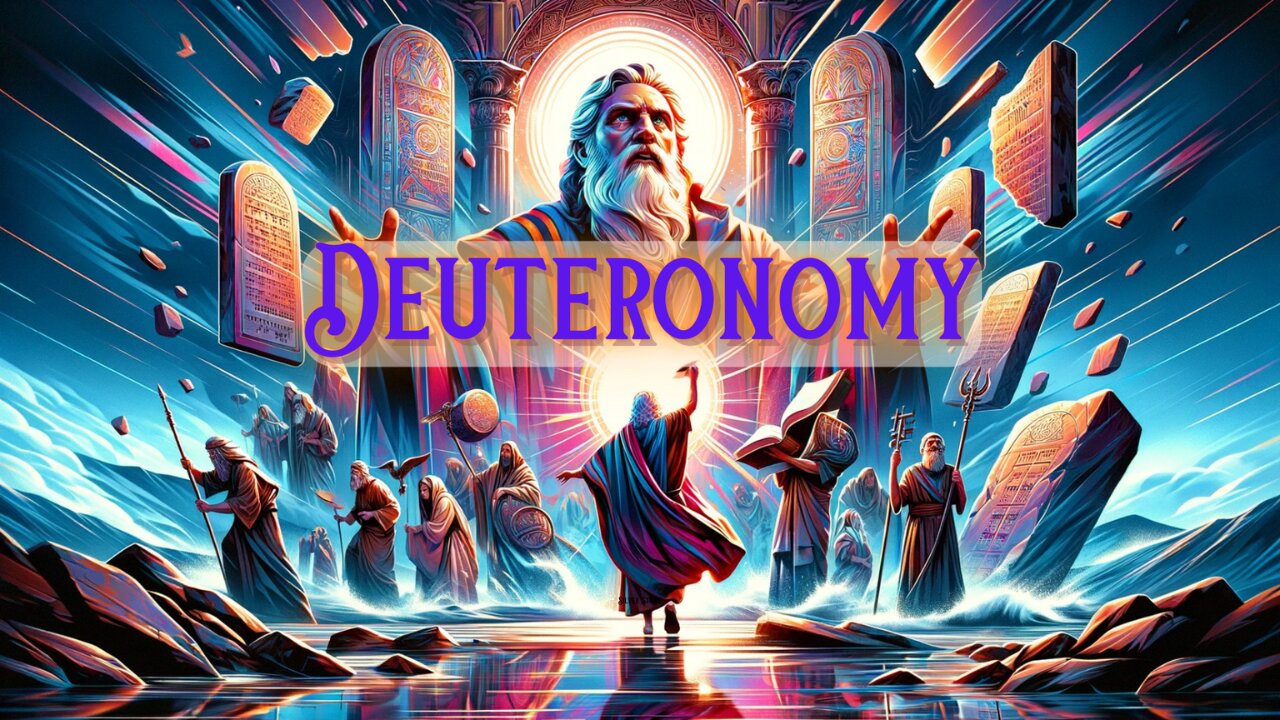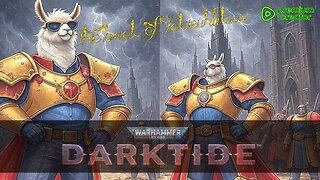Premium Only Content

Unlocking Deuteronomy: Exploring Divine Law - Part 1 of 3
Embark on a spiritual journey through Deuteronomy, the profound book of God's law. In this first episode, we delve into its timeless teachings, uncovering wisdom that speaks to our hearts today.
🔍 In this episode:
* 📖 Explore the rich commandments and teachings of Deuteronomy.
* 🤔 Reflect on Moses' leadership and the powerful messages he delivered.
* 🌈 Connect the ancient wisdom of this book with our contemporary life.
🚀 Why watch?
* 🌟 Deepen your spiritual understanding and faith.
* 🧩 Discover the relevance of these teachings in your personal journey.
* 🙌 Join a community dedicated to learning and growing in Christ.
👀 Stay tuned for:
* 🌙 Thought-provoking discussions and insights into God's Word.
* 🎥 Engaging, heartfelt narrations bringing the Scriptures to life.
* 🙏 Parts 2 and 3 of our Deuteronomy series, where we'll explore even more about God's guidance and love.
🔔 Don't forget to subscribe for more insights into the Bible. Like and share to help others on their path to faith!
#Deuteronomy #BibleStudy #SpiritualJourney #DivineLaw #RelateNation
The Documentary Hypothesis: Understanding the Authorship of the Old Testament
* Origins and Development:
* 17th Century Queries: Scholars like Thomas Hobbes and Baruch Spinoza initiate critical questioning of the traditional Mosaic authorship of the Pentateuch.
* Jean Astruc (18th Century): Proposes the idea of separate sources for Genesis, identifying different names for God (Elohim and Yahweh) as key markers.
* Julius Wellhausen (19th Century): Refines the hypothesis into a comprehensive framework, suggesting four main sources for the Pentateuch:
* J (Yahwist): Uses "Yahweh", originated around 950 BC in Judah.
* E (Elohist): Prefers "Elohim", from around 850 BC in Israel.
* D (Deuteronomist): Linked to Deuteronomy, possibly from 7th century BC in Judah.
* P (Priestly): Focuses on rituals and laws, post-exilic period (post-6th century BC).
* Impact on Biblical Scholarship:
* The hypothesis has profoundly influenced biblical studies, offering insights into the historical, religious, and cultural contexts of ancient Israel.
* It suggests the Old Testament is a compilation from various authors over time, each with distinct styles and theological perspectives.
* Contemporary Debate and Alternatives:
* The hypothesis continues to be refined and debated in light of new scholarly methods like literary and source criticism.
* It stands as a foundational theory in understanding the complex composition of the Old Testament, amidst various alternative theories.
-
 LIVE
LIVE
TimcastIRL
2 hours agoBREAKING: MASS SHOOTING ERUPTS In NYC, Police Officer SHOT, FBI On Scene | Timcast IRL
26,475 watching -
 LIVE
LIVE
MyronGainesX
19 hours agoNYC Active Shooter, Trump EU Deal, Candace Sued By Macron, Ohio Thugs Assault Couple, And MORE!
1,877 watching -
 LIVE
LIVE
ZWOGs
8 hours ago🔴LIVE IN 1440p! - EFT w/ crgoodw1n, Kingdom Come Deliverance, Splitgate 2, & More! - Come Hang Out!
198 watching -
 30:09
30:09
Afshin Rattansi's Going Underground
1 day agoCurtis Yarvin: ‘Trump 47 is 10x More Powerful than Trump 45’ & the TOXIC US-Israel Relationship
2.85K24 -
 LIVE
LIVE
Drew Hernandez
6 hours agoTRUMP HINTS DEMS COULD HAVE PLANTED FAKE EVIDENCE & MANIPULATED EPSTEIN FILES
960 watching -
 LIVE
LIVE
Eternal_Spartan
9 hours agoThe Legend of Zelda: Majoras Mask Ep. 5 | USMC Vet | Come Join the Best Chat on Rumble!!!!
28 watching -
 LIVE
LIVE
Barry Cunningham
3 hours agoPRESIDENT TRUMP HAS DESTROYED WOKEISM! DEMOCRAT PARTY IN SHAMBLES!
7,439 watching -
 LIVE
LIVE
The Pascal Show
1 hour ago $0.06 earnedBREAKING! Active Shooter In Midtown Manhattan NYC Multiple People Shot!
10 watching -
 10:25
10:25
MattMorseTV
6 hours ago $4.46 earnedVance just DROPPED a NUKE.
6.58K23 -
 LIVE
LIVE
Jokeuhl Gaming and Chat
4 hours agoDARKTIDE - Warhammer 40k w/ Nubes and AoA
61 watching